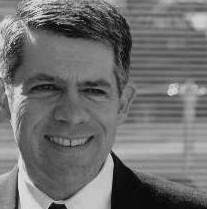The present scarcity mentality coupled with a zero sum
We have always been a country of immigrants. For most of our history there was no such thing as an “illegal” immigrant. Most of the Irish, Italians, and other European immigrants simply showed up on our door step. Most Black Americans have roots in enforced immigration… And Native Americans may still view the rest of us as illegal immigrants… We have accepted, proportionate to our national population at the time, more immigrants in 1907 than the total legal and illegal immigrant population that crossed our borders in 2007. So what’s the difference today? Tax dollars are tight. Jobs are tight. In other words, we have a scarcity mentality and a zero sum
We fight over the definition of what the Founding Fathers meant with the 2nd Amendment, but care little for debate on the 4th, 5th, 8th, 9th, and 14th Amendments, to name a few. We create faulty dilemmas structuring arguments where we believe we have to choose between good and good so that no matter what we choose, we lose, or between two bad options where we feel justified in bad selections. In both cases we are only attempting to make a choice while escaping responsibility and accountability.
Dr. Victor E. Frankl lived three years in Nazi Germany’s concentration camps. Even under these severely inhumane and restrictive conditions, he had this to say:
The experiences of [concentration] camp life show that man does have a choice of action. . . . Man can preserve a vestige of spiritual freedom, of independence of mind, even in such terrible conditions of psychic and physical stress. . . . Everything can be taken from a man but one thing: the last of the human freedoms—to choose one's attitude in any given set of circumstances, to choose one's own way… There were always choices to make. Every day, every hour, offered the opportunity to make a decision, a decision which determined whether you would or would not submit to those powers which threatened to rob you of your very self, your inner freedom; which determined whether or not you would become the plaything of circumstance, renouncing freedom and dignity to become molded into the form of the typical inmate. . . . The last inner freedom cannot be lost.
Choice is defined as “the mental process of thinking involved with the process of judging the merits of multiple options and selecting one of them for action.” Choice then, involves input, cognition, judgment, and selection. Choice is also the result of selection, as in, “my choice is door number one.” Choice implies the ability to choose between options from all enticing corners. Choice, however, does not stand alone. Choice is a hollow currency without accountability. As Economist and Nobel Prize winner Amartya Sen suggested, “There is something deeply irresponsible about denying choice when a choice exists, for it is a denial of freedom and an abdication of accountability.” Interestingly, Victor Frankl, expert and exemplar of choice, recommended that the Statue of Liberty on the East Coast of the United States (a symbol of freedom and choice) be supplemented with a Statue of Responsibility on the West Coast. He explained,
“Freedom, however, is not the last word. Freedom is only part of the story and half of the truth. Freedom is but the negative aspect of the whole phenomenon whose positive aspect is responsibleness. In fact, freedom is in danger of degenerating into mere arbitrariness unless it is lived in terms of responsibleness.”Accountability is sometimes negatively defined as dead weight, a millstone, blame, stress, and affliction. In response to the negative cloud of accountability I suggest it is much easier to retreat to casting blame elsewhere. It is not “choice and creativity of escaping governing principles,” that drives meaning and long-term success. As Covey explained, “values govern people’s behavior [choice], but principles ultimately determine the consequences [and accountability]”. In all fairness to accountability, it optimistically connotes concern, allegiance, duty, stewardship, loyalty, answerability, and obligation. It is the justification of judgment (choice). Choices are made with or without the understanding of governing principles, but accountability over time is a guidance mechanism that aids participants in making better choices. In this season of political debate, let’s turn back to principles, not knee-jerk reactionary laws that will, in the end cause us once again to reconsider principles, but only after painful reminders of their existence.







No comments:
Post a Comment